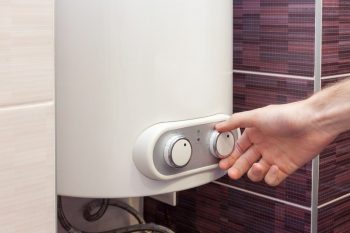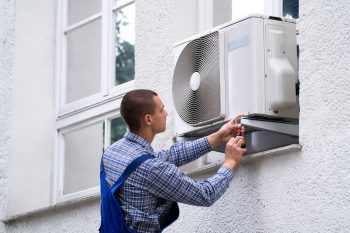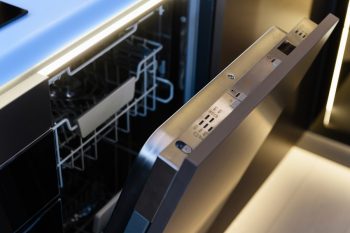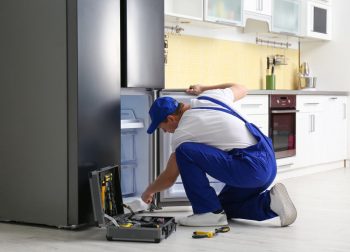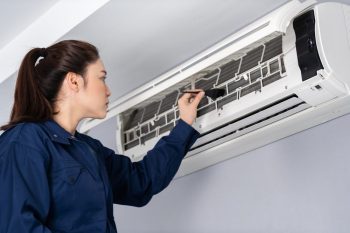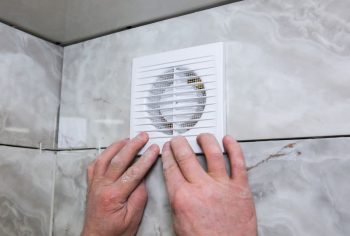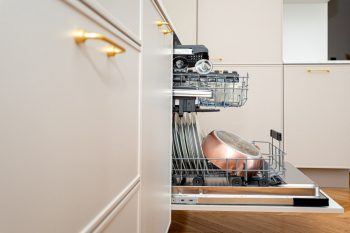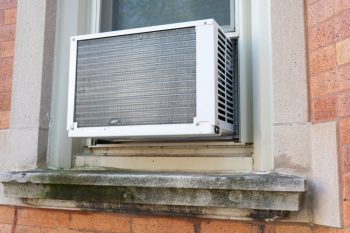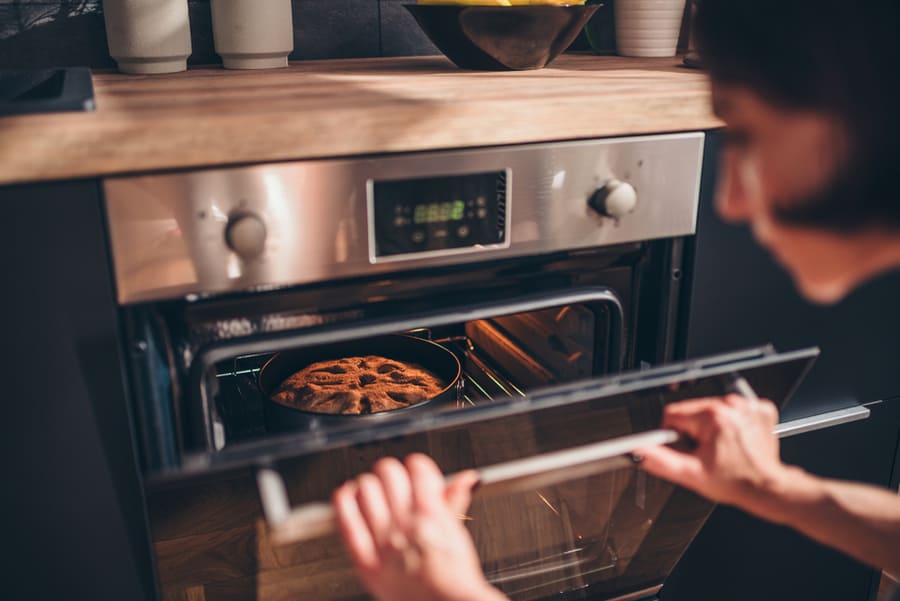
An oven is a kitchen appliance that has become essential to our daily lives. We can use it for baking, roasting, broiling, and even grilling our food.
However, ovens can sometimes make strange, quite concerning noises like any other appliance.
The good news is that most of these noises are harmless and can be easily fixed with some basic troubleshooting.
It is essential to know why your oven is noisy so that you can diagnose the problems and take the necessary steps to fix them.
This article will explore the most common causes of oven noise, from simple issues like loose components to more complex problems like malfunctioning motors or fans.
We will also give you some tips on troubleshooting and fixing these problems, so you can return to cooking delicious meals without any distractions.
Everyone loves a freshly baked homemade pie. Therefore, ovens are important household appliances but can be noisy at times.
Ovens’ noise is usually from their operation, but sometimes it can indicate malfunction or damage.
The following list contains the most common reasons for oven noise:
- Fan noise
- Gas Valve
- Cleaning system
- Loose components
- Control panel
- Heating system
- Door and hinges
Call a professional for repair if any of these components make a strange or unusual sound.
This article thoroughly explains common reasons for a noisy ovens and what you should do to fix them.
You will also learn some useful tips on reducing oven noise to make your cooking experience more peaceful.
Reasons Why Your Oven Is So Loud
The noise of any sort can irritate people who enjoy a quiet home. Therefore, oven noise can be distracting, especially if you have an open layout for the kitchen.
You may be lying comfortably on the couch reading a book on the weekend, but the continuous humming and buzzing of the oven might spoil your mood.
Therefore, you should know what causes the noise and how to fix it.
Here are the nine most common reasons why your oven is loud:
1. Convection Fan
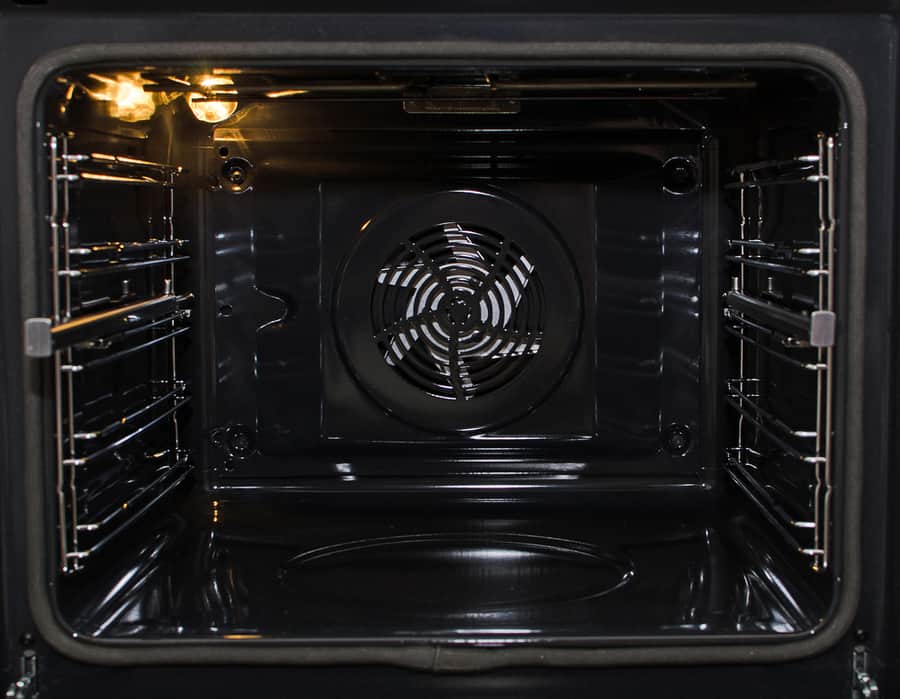
Have you ever wondered why your roasted chicken or turkey is evenly cooked to the inside?
It is because of convection. If your oven has a convection feature, it will also have a convection fan.
This fan circulates hot air throughout the oven to ensure even cooking. It is one of the most crucial components of an oven. In addition, a convection fan can make a humming noise while in use.
However, if the noise is excessive, it could indicate a motor problem or debris buildup.
The fan blade could sometimes hit something, causing a rattling sound. It is always best to have a professional inspect and repair the issue.
But if the convection fan is working fine and the noise is only the operational noise, there are several ways to reduce it. First, you may use rubber padding on the oven’s feet to absorb vibration.
On the other hand, you can build a sound-proof cabinet around the oven to reduce all the noise that the oven produces.
2. Cooling Fan
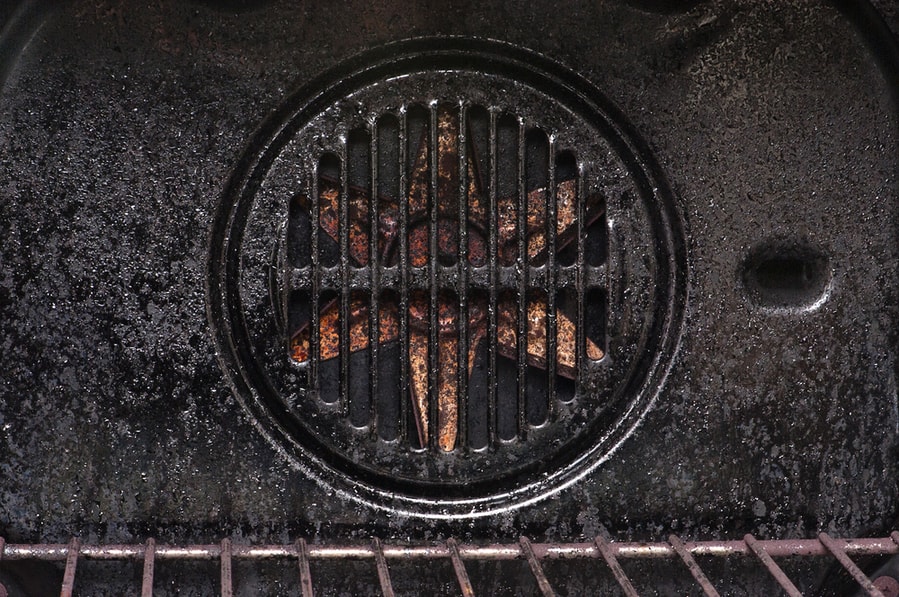
Some new models of ovens come with a cooling feature that cools down the oven quickly after you have used it. It helps you prepare the oven for the next cooking or baking session if you want to reset the heat to a lower temperature.
The cooling fans are typically operational after you shut down the oven. However, the spinning blades of the cooling fan may create an unpleasant wooshing sound.
You can reduce the cooling fan noise by using sound-reduction devices around the oven.
3. Gas Valves
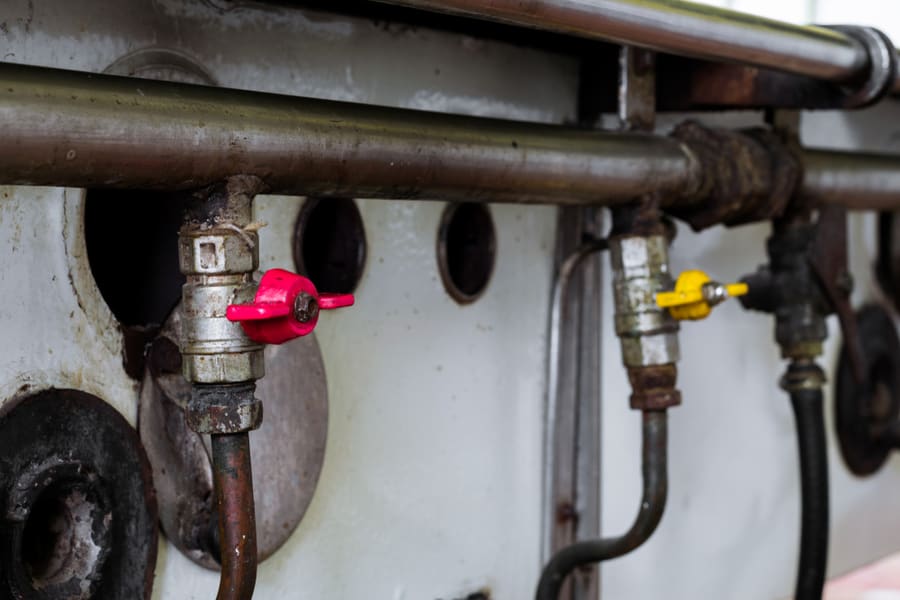
Most homes have a gas oven instead of an electric one. If you have a gas oven, the noise could be coming from the gas valve. When the valve is turned on, it emits a hissing sound as the gas flows through the pipes.
You do not need to be concerned about the gas valve noise. However, you cannot identify if the gas flows to the pilot light without it.
However, if the noise is louder than usual or persists, it could indicate a leak in the gas line, a safety hazard.
In such a case, immediately turn off your oven and the gas supply valve and call a professional.
4. Self-Cleaning Function
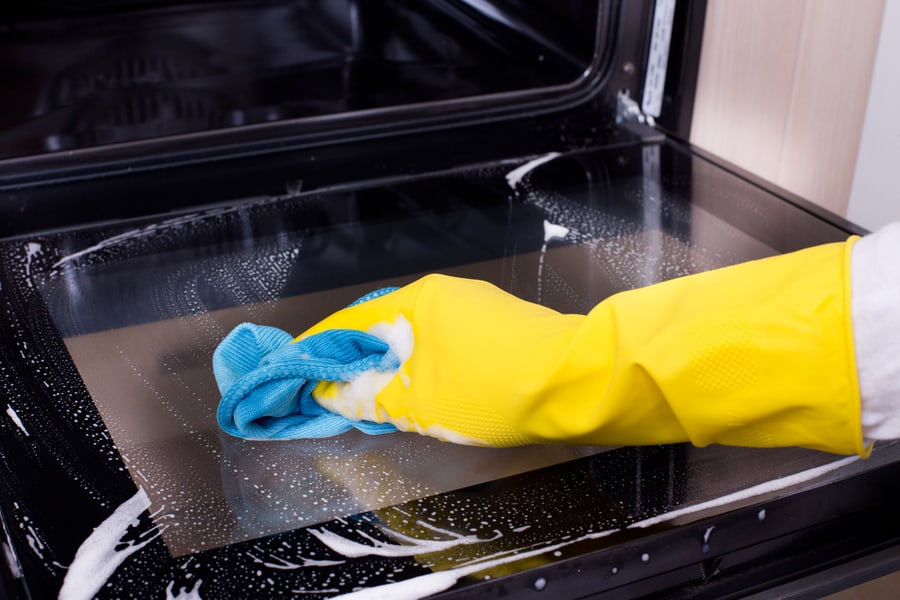
Some ovens have a self-cleaning function that uses high temperatures to burn off food residue or grease. It is an extremely helpful feature and saves you from the tiring process of cleaning the oven yourself.
During this process, your oven may make loud cracking or popping sounds, which is normal. However, if the noise is excessive, it could indicate a problem with the oven’s insulation, and you should have a technician inspect it.
5. Heating Filament
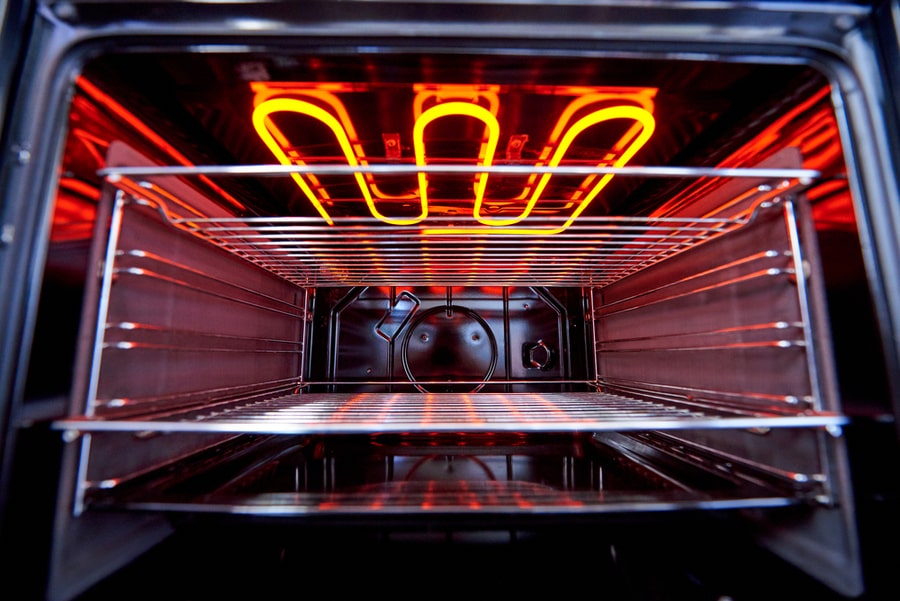
Another possible reason your oven makes noise is a faulty heating filament. The heating filament is responsible for heating the oven in electric ovens and operates almost every time you are using the oven.
If the heating filament is damaged and worn out, it can produce a buzzing or humming sound. Sometimes, the noise could also be caused by a loose connection between the heating element and the oven.
6. Door Noise
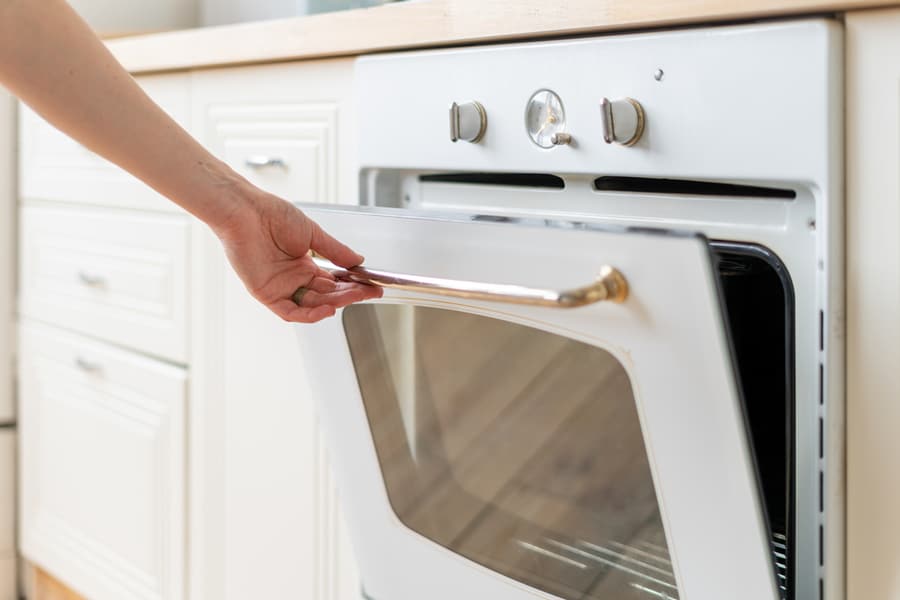
The oven door can make a noise when it is not properly aligned or when the hinges are worn out. The door may also produce noise if the latch has an issue.
The door noise may not be continuous or contribute too much to the oven noise, but no one likes a squeaking door.
An unfastened or misaligned door can cause excessive noise, which can be addressed by adjusting the door alignment or replacing the worn-out hinges.
7. Vibration Noise
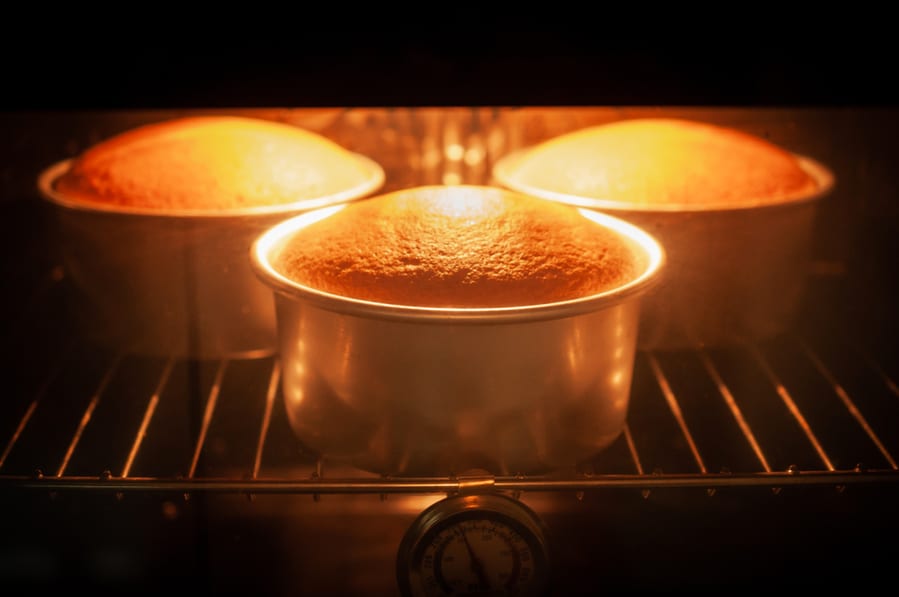
An oven that is not level or has an unbalanced electrical component can produce vibration noise. The vibration can be coming from any of the components of the oven.
Typically, you do not need to worry too much about the vibration since every operation makes a little vibratory sound, but if it is excessive and strange, you may need to check it.
The vibration can be reduced by ensuring the oven is level, and the fans are balanced. It is also important to check for loose parts, such as screws, contributing to the vibration noise.
8. Loose Parts
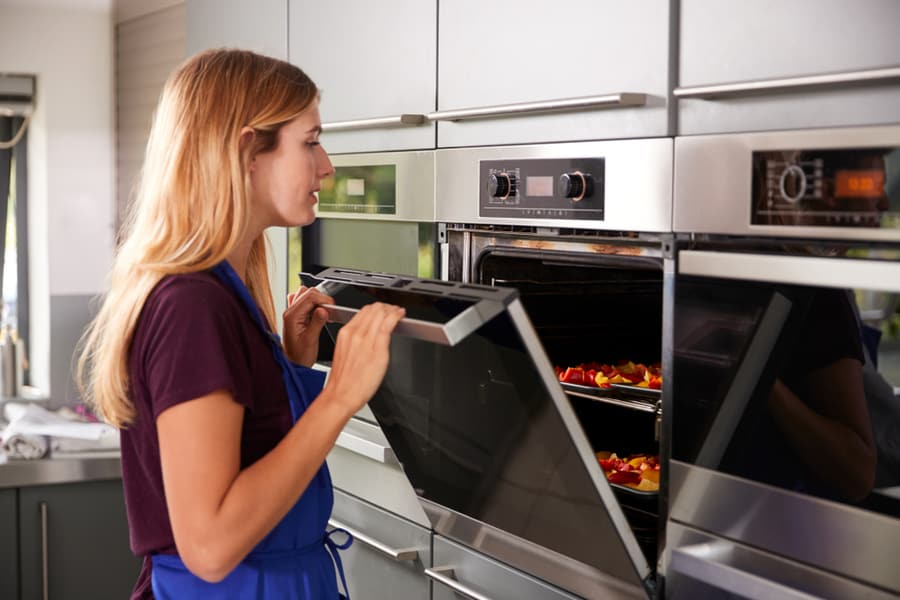
As the oven ages, the screws and other components can become loose and rattle, causing noise. If the oven you purchased some time ago has started to make noise, chances are, its components have become loose and need a fitting.
Regular maintenance and inspection can help identify loose parts and prevent them from causing any serious damage to the oven.
9. Control Panel Noise
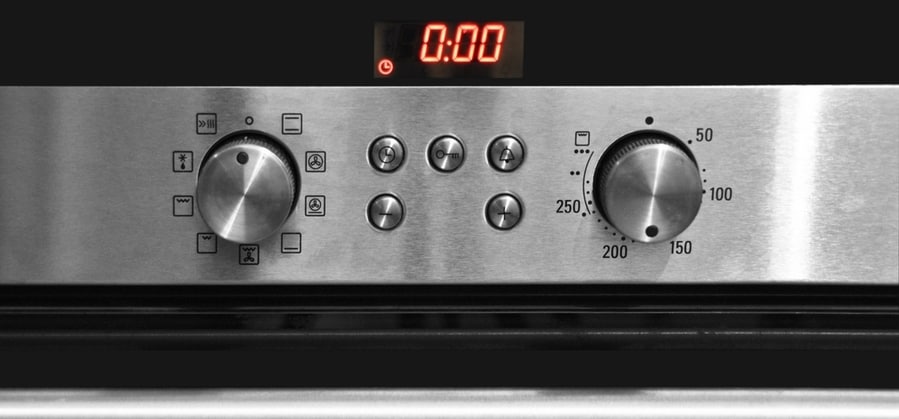
If you have an electric oven, you are more likely to experience control panel noise. Some ovens may produce beeping or clicking noises when buttons are pressed or when the oven is turned off or on.
This normal noise results from the control panel sending signals to the oven’s components. If you do not want the control panel noise to distract you, you can change the oven’s settings to mute (if it has the option).
How To Reduce Oven Noise
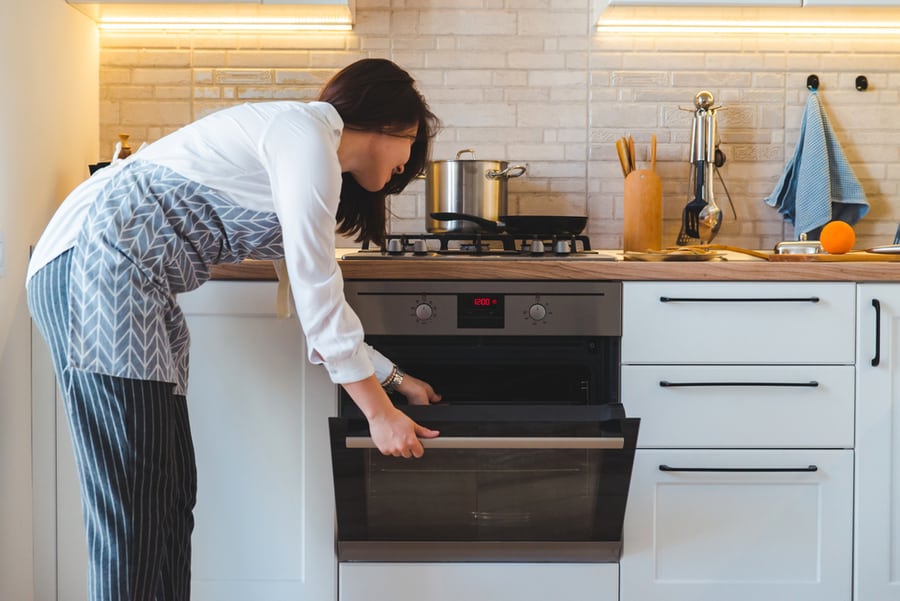
Oven noise can be a nuisance, especially when concentrating on cooking or entertaining guests. However, there are several ways to minimize oven noise to enjoy a more peaceful cooking experience.
Here are ten tips to help you get started:
- Position the Oven Correctly: One of the easiest ways to reduce oven noise is to position it correctly. Place the oven on a sturdy surface that’s level and doesn’t vibrate when the oven is in use. This will help minimize vibrations and reduce noise.
- Check the Oven Fan: The oven fan is a common noise source. If the fan is damaged or misaligned, it can produce a loud noise. Check the fan for damaged or loose parts and replace or tighten them.
- Insulate the Oven: Insulating the oven can help reduce noise by absorbing sound waves. You can use sound-absorbing materials such as acoustic foam or install a sound barrier around the oven.
- Clean the Oven: Dirt and debris can cause the oven to produce more noise than usual. Clean the oven regularly to remove any buildup of dirt and debris that could be causing the noise.
- Adjust the Oven Temperature: A too-high temperature can cause the oven to make a humming noise. Adjust the temperature to the recommended level to reduce the noise.
- Use a Noise-Reduction Pad: A noise-reduction pad can help absorb sound waves and reduce the oven’s noise. Place the pad under or on top of the oven to reduce noise.
- Install Isolation Pads: Isolation pads are small rubber pads you can place under any appliance’s legs that reduce vibration sound. These pads reduce noise by isolating the oven from the surface it is placed on. They help absorb the vibration and reduce the noise.
- Use Soundproofing Curtains or Panels: Soundproofing curtains or panels can help absorb sound waves and reduce the noise produced by the oven. You can install them around the oven or on the wall behind them.
- Check the Oven Door: The oven door can produce noise if not properly aligned or sealed. Check the door for any misalignment or gaps and seal them as needed.
- Get the Oven’s Self-Cleaner Checked: Ovens with self-cleaning features make a lot of noise. Check for any loose parts or faulty fittings. Call an oven professional for help if needed.
Conclusion
There are several reasons why your oven may be making noise, and it is essential to have it diagnosed and repaired by a professional technician (if required).
Ignoring the issues could lead to further damage to your oven or pose a safety hazard. Regular maintenance and cleaning of your oven can help prevent future problems and extend its lifespan.
Frequently Asked Questions
Can I Repair the Noisy Oven Fan Myself?
Yes, if your oven needs repairs and you have experience fixing ovens, you can do it yourself. But before you start, be sure to diagnose the problem first.
Check which component needs repairs and start repairing it. Call an oven technician if you do not understand the mechanism or find it difficult. Do not keep experimenting; it may lead to more harm than good.
Should I Get My Oven Checked if It Smells Bad?
If you ever notice any strange noise or unusual smell, it is advised to get your oven checked by a professional technician. But before that, check for any food spills in your oven.
The smell may be coming from the food residue in the oven, and more than a repair, it needs cleaning. In such a case, you must clean your oven thoroughly. Use a grease-cutting soap and a non-abrasive brush.
Remove all the food residue since it can lead to mold or bacterial growth if left unattended. Do not use harsh or toxic cleaners since any leftover residue may impact the food you cook in the oven.
Use a mild vinegar solution for cleaning if you are unsure about store-bought cleaning products.
Why Is My Gas Oven Making a Rattling Sound?
A gas oven typically does not make a rattling sound. But if you have recently made any minor repairs or fixes to the body panel of your gas oven and could not tightly close it, it may be causing the noise.
You can fix this problem by reopening the panel and tightening any loosely fit components, and later closing the body panel and sealing it correctly.

